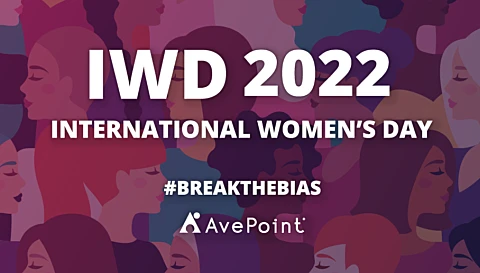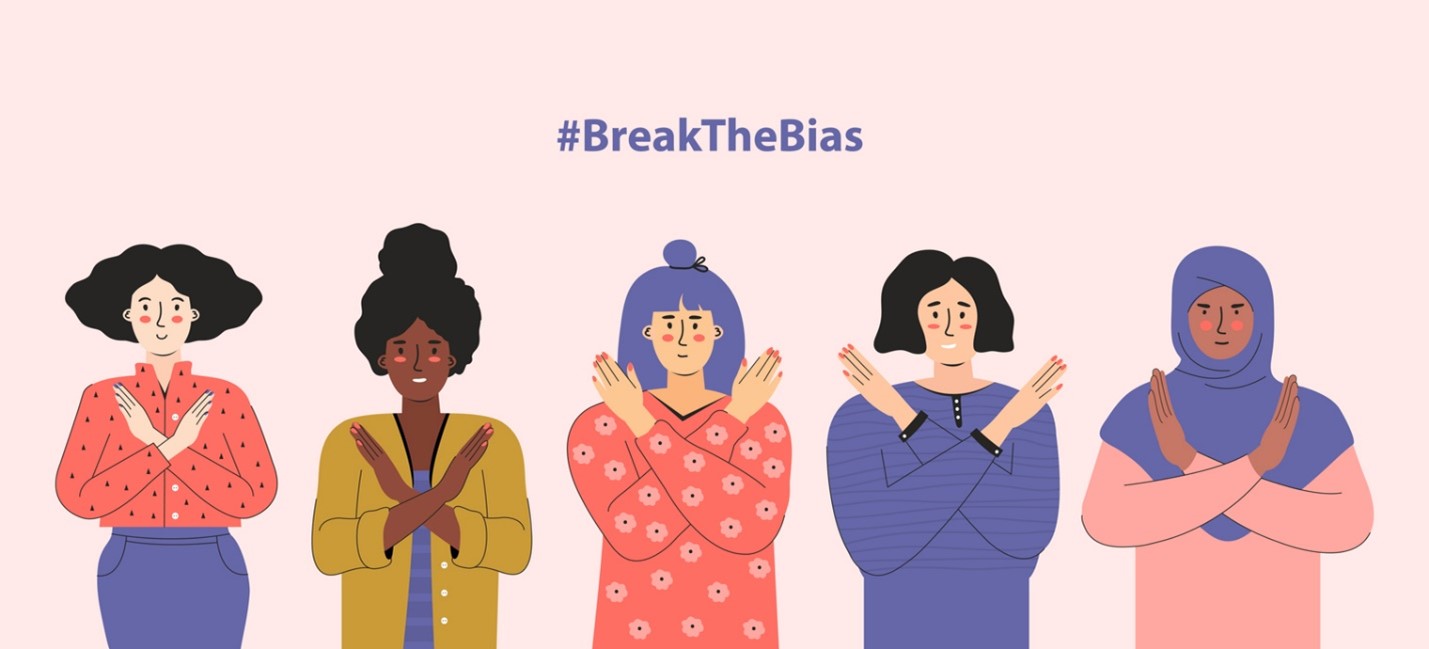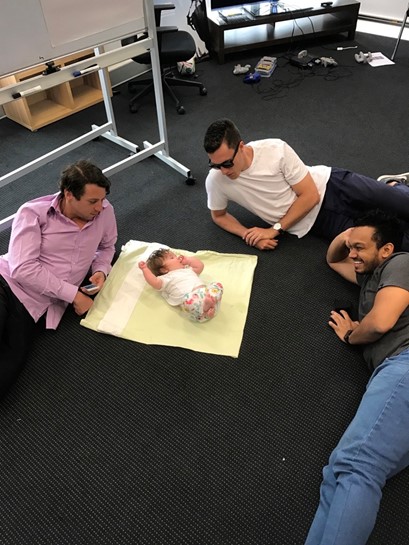In Practice: #BreakTheBias


Diversity. Equality. Inclusion. Without action, these are just empty buzzwords representing workplace equity. The reality for most organizations is that true Diversity, Equality & Inclusion (DE&I) is idealistic; it’s the North Star of what we envision for a future workplace that is equitable and productive BECAUSE of the DE&I initiatives we create today.
We call it a DE&I initiative because action is needed to make change. Without action, we simply maintain the status quo. This action can be as small as a one-on-one conversation to as large as actively advocating for significant systemic changes. As long as we keep acting, change can happen.

How does one actively #BreakTheBias in an organization?
The biggest catalyst for change comes from a bottom-up and a top-down approach: simultaneously leading by example and with integrity while also pushing for systemic and organizational change, creating a space where education is paramount and allyship is pervasive.
The beauty of the Employee Resource Groups (ERGs) at AvePoint is that they help create important discussions across teams. By initiating conversation, we invite personal changes through learning, understanding, and even some unlearning.
One of the biggest learnings I’ve gained from my participation in ERGs is that bias is intersectional – we are each multi-faceted individuals. Everyone has aspects that could be considered privileged, and many have had to overcome more than one perceived barrier.
And as unique as our perspectives are, so are our behaviors and expectations of our teams. That’s why communication is essential to understanding each other and how we can work best together.
For me, conversation and understanding are the first steps to #BreakTheBias. I am insanely curious about what drives people, what people care about, and how best we can build a structured and supportive environment that benefits not just the majority, but everyone to reach their maximum potential. My curiosity has helped me foster a team that is productive while feeling understood and valued.
What does equity look like at AvePoint?
A long-time colleague of mine turned confidant and friend, Alyssa Blackburn, who serves as our Records & Information Management Strategy Director, reflected on her initial recruitment to AvePoint in our panel discussion. Her experience is what I view as true equity for a productive workforce, and just generally being good humans.
While being recruited at seven months pregnant, Alyssa recalls that she was, “entering into an unusual opportunity to join an organization feeling as if I needed to disclose at every chance that I was INDEED pregnant. Part of my onboarding negotiations was how to balance being a mother and being successful in my role.”
From onboarding to now, eight years later, AvePoint has accommodated Alyssa’s needs, offering part-time and flexible working hours. This flexibility to work outside the normal ‘9-5’ and around family commitments, not only allowed her to be a mother, but also to connect with colleagues worldwide, which unintentionally worked well at an international company.
More than that, though, was how Alyssa felt because of this flexibility. She says, “I never felt like an inconvenience – my priorities to my family didn’t feel short changed, which allowed me to maximize my time at work. Don’t get me wrong, it has been a juggle, but I’ve definitely been supported in that juggle..”

Picture 1: Alyssa’s youngest, with the Melbourne Sales Team, as she runs a webinar. It truly takes a village.
Hear more about her story in our live broadcast – she’s a joy to listen to!
How can others be champions for change?
I operate under three fundamental rules:
Learn and educate. Change comes from understanding the issue and its undercurrents. Analyze the present state of what bias exists, and then create actionable changes that drive towards positive behavioral outcomes. A problem is much easier solved when it has a name.
Put simpler: We are in the people business – organizations are built on relationships and comprehension. That insane curiosity I mentioned before? It is an eagerness to understand the why and how of human behavior and interactions. I often lead with “tell me more” to understand experiences I do not personally have.
Few people are intentionally malicious; most times inaction comes from a lack of understanding. Allyship is powerful because it amplifies stories through relationships.
Give credit where credit is due. Being an active participant in ERGs as an executive creates a duality – to both the change and to have change benefit my organization and the company.
In WIT ERG, we frequently talk about how to redirect attention to those overlooked in meetings; brilliant ideas can be lost when too much focus is put on the highest title. Sometimes it is an easy redirect, and sometimes it is an intentional callout to boost the owner of the idea before removing myself from the conversation to allow room for discussion.
I would be remiss if I did not mention now that credit for the WIT ERG does not go to executives, or the People Team, but a colleague of mine on the Sales Team, Karen Devaney, who had a vision for a group of people to gather and share ideas and stories. Again – the most brilliant ideas can come from the least expected places.
Communicate effectively. When you are looking to change minds, the most effective communication comes from talking to people how they can best hear and understand rather than how you can best share.
I do believe that everybody recognizes the value of women and can see inequality in everyday behavior, but noticing inequity is not enough. Until we recognize the underlying, often entrenched and systemic bias and take action to change it, we will remain disparate.
It’s not easy for people not experiencing bias to see or hear about it. As we learned above, though, personal connections can help these people better understand. If you know me, and know that these are my words, you’d likely listen a little closer. Maybe I’d trigger your curiosity. Maybe you’d ask me to tell you more. And maybe, after hearing my experience, you might realize others also share different experiences, too, and ask them to tell you about it. That’s how change begins.
Being a champion for change isn’t always loud; often, it’s a conversation with one person, compounded by multiple people. It’s planting a seed, such that when watered by the same sentiment of colleagues and trusted friends and advisors, fosters an environment for actionable change.
AvePoint on LinkedIn: #BreakTheBias

Julie Liu is the Senior Vice President of Global Marketing at AvePoint, a SaaS and data management platform that manages and protects data to secure collaboration in the Microsoft cloud, SharePoint, Salesforce, and Google. Julie is an industry-recognized marketing leader, most recently mentoring others to create scalable marketing strategies, launching a sustainable global partner program, and establishing AvePoint as a publicly-traded company.








